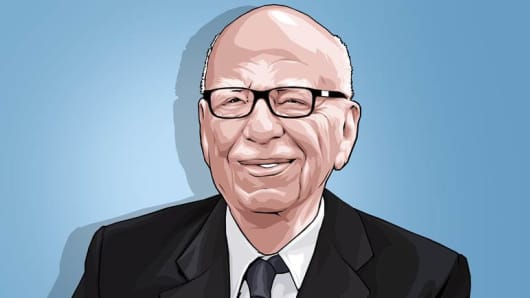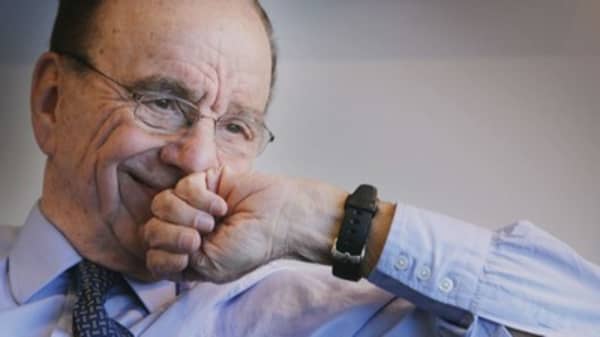Executive chairman, News Corp.; chairman and CEO, Twenty-First Century Fox
Born: March 11, 1931, Melbourne, Australia
Education: Master's degree in philosophy, politics and economics, Worcester College, Oxford University
No media mogul has matched the power and influence that Rupert Murdoch has achieved over four continents. Nor has any put a newspaper and magazine empire so perilously at risk in order expand into broadcast news and entertainment. In pulling off a bet-the-farm gamble, Murdoch reshaped the media landscape over the past quarter of a century and fashioned the 24-hour cable news format as he had a generation earlier with the sensationalist, mass-circulation tabloid newspaper.
Murdoch controls the companies that produce many of the newspapers and books that people in the U.S., the U.K., Asia and Australia read, as well as the films and television shows they watch, the radio stations they listen to, the websites they visit, and the business news and data they buy.









































